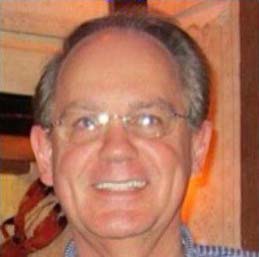Why Good Broadcasters Leave the Industry

[February 2017] In many places, working in a radio station is no longer the “plum job” that used to be prized. Not only are many stations run by skeleton staffs, but a frightening number of stations have no real live on-air presenters. In some stations, you can walk through a dozen or more studios and fine no one at all.
Michael Dudding remembers it was not always that way.
After 43 years in the radio broadcast industry, I have learned the number one reason good, in some case, darn good broadcasters leave, is because “it’s no longer fun.”
When I got into broadcasting, Radio always offered something new or different every day. There certainly was no monotonous standing behind a cash register or stocking shelves for eight hours. We did lots of things from playing new records to delivering local news and weather alerts to going out and doing remote broadcasts. I really enjoyed going to work each day.
Unfortunately, neither I nor many radio folks I know still feel that way.
That Was Then
Less than six months into my first radio job, I had an opportunity to see the seeds of coming changes.
That day we had an FCC Inspector at our front door. Back then, if an FCC Inspector was “in the area,” radio stations would call nearby stations alerting them there was an FCC Inspector “in the area.” The paranoid shock caused by an FCC Inspector “in the area” puzzled me, until I realized one mistake or error could actually cost a radio station thousands of dollars – even if the error was unintentional.
I actually enjoyed my conversation with the FCC Inspector. I watched as he calculated measurements, etc., and he quizzed me on a few basic transmitter readings and how to calculate them. In our conversation, I asked him “why are FCC Inspectors feared? Shouldn’t the FCC be a partner/friend of broadcasters to help them?”
His reply was “in theory, yes, but there are some owners and broadcasters who just don’t subscribe to the Rules and Regulations of the FCC, giving us a bad name because of the job we have to do.”
Moving On Up
Evolving from a part-time announcer to eventual owner afforded me the ability to learn different responsibilities and mostly prepared me for ownership.
Nevertheless, moving into ownership was a culture shock because I found myself faced with ownership challenges I never expected. “How to Own, Operate, and be a Highly Profitable Radio Station” still was not available in paperback. New broadcast owners either relied on “veteran owners” or “let’s try this FCC Phone number” to get assistance.
If it were only that easy.
One time, I spent the majority of a day trying to call the FCC personnel to assist me with an FCC question. I was routed to three different cities and countless numbers of secretaries who said “oh, you need to talk with “X” at “Y.” I laughed when I talked to the same person twice in that day – a wrong number (again).
If you navigate the FCC website regularly and can easily find what you need you have every right to laugh at me. But the majority of the broadcasters I speak with do not spend much time on the FCC website. It just does not seem to be designed for the easy transfer of information.
Trying to Super Serve
My goal as owner is still “give someone more than they expect or deserve,” going beyond what is expected by the Federal Communications Commission, our community, and our advertisers. We strive to have that basic “fun” attitude every day.
All this “earned me the ability” to write for a radio publication on “The Secrets to Thriving in a Small Market,” later to be followed by “10 Secrets to Success in Small-Market Radio.” It seems they struck a chord with a lot of folks, as I got quite a few replies.
Of course, I had to smile at those who questioned my stations profitability because I face tax problems every year. On the other hand, I enjoyed it when over 80 small market radio stations wrote to say “Thanks! Your article rekindled my love for this industry, I shared this with my staff and it recharged their passion for radio.”
The overall response was sure good for my soul.
Exit Plans
So, why are good radio personnel leaving radio?
Answers ranged from “radio broadcasting has changed.” “There’s more competition,” “there’s an increasing amount of continual FCC Rules and Regulation changes,” “there are more fees, more music licensing entities, and more ‘canned music programming,’ putting good broadcasters out of work.”
Have you ever driven through a city when there was severe weather and tried to find a radio station with up-to-date weather information?
All too often these days, what you will hear is satellite delivered programming or local automation “playing the hits.”
On the other hand, in some smaller markets, radio stations sometimes bring in their entire staff when severe weather (flooding, tornadoes, hurricanes, etc) is forecast, using RVs, trailer homes, etc. Often they all stay and do not go home until the severe weather has past. Generally the local law enforcement and storm chasers appreciate the ability to use your radio station to keep listeners informed.
The sad part is that unlike when I was younger, the latter situation and example of having an entire is the exception rather than the rule.
Can We Leave Radio Better Off?
I am in the twilight of my broadcasting career. It has been an honor to work with great broadcasters, share ideas and help each other.
But looking ahead, I can only hope I leave this industry being able to help someone own their own radio station – offering my experience and counsel on how to help their staffs produce what I consider “good radio,” radio that serves our listeners well.
More importantly, when I leave, I hope radio can still be fun for the next generation.
What is your goal?
– – –
Michael Dudding is the owner and General Manager of KDSN, Denison, IA, a member of the Iowa Broadcast Association, and an active broadcaster for over 30 years.
Email Michael at: mdudding1@hotmail.com
